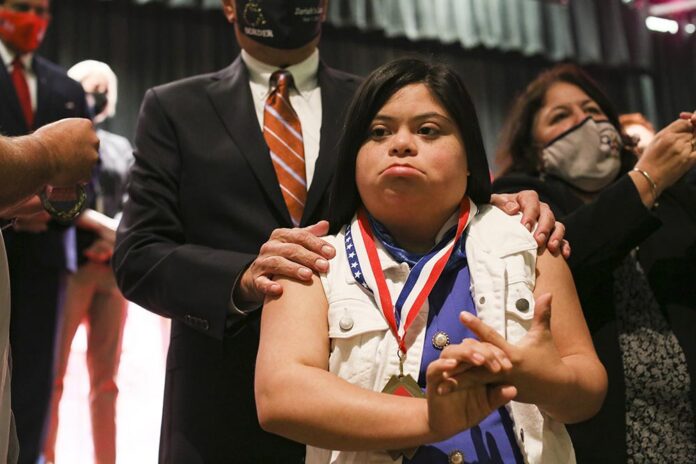
Amid the several controversial new laws enacted this year by the Texas legislature were some good bills that deserved, and got, bipartisan support. One especially welcome law that took effect Sept. 1, and originated in the Rio Grande Valley, expands school athletic programs to include adaptive sports for special-needs students.
It’s a welcome, and valuable, expansion, and those who helped make it a reality deserve applause, and thanks.
Senate Bill 776, named Zariah’s Law for the Brownsville student who inspired it, is the first of its kind in the country. It charges the Texas Education Agency and the University Interscholastic League, which supervises school athletics in the state, with establishing and governing adaptive sports programs just like current varsity sports programs. Those steps will include getting input from federal agencies, professional adaptive sports programs and the schools themselves to offer competitive sports programs at Texas public middle and high schools.
Meeting the needs of people with disabilities has long been a battle for many people, and much progress has been made. Adaptive facilities are becoming more common at parks in the Valley and elsewhere, and more efforts are being seen to enable people with special needs to be a greater part of everyday society.
Unfortunately, that attention is fairly recent, especially at many schools where the relatively small minority of special-needs students often means inadequate attention, and funding, to their needs. In the past, some schools simply separated students into special education classes where their abilities at times weren’t developed adequately. In the worst cases, special-needs students essentially were warehoused in their own rooms, and some schools made little effort and invested few resources toward addressing their needs and abilities.
Brownsville resident Sergio Zarate, whose daughter and the law’s namesake, Zariah, is a freshman at Veterans Memorial Early College High School, The father, working with local experts and advocates, helped create Down by the Border to create and promote local competitive programs for special-needs residents. They inspired state Sen. Eddie Lucio Jr., D-Brownsville, to sponsor SB 776, which Gov. Greg Abbott signed into law in June.
The programs created under Zariah’s Law are a welcome, and logical, extension of programs that began with Eunice Kennedy Shriver created the Special Olympics in 1968. That program has widespread support, and some school districts even have support programs and play host to Special Olympics events. However, the infrequency of those events are evidence that we could do more to promote physical development among people with special needs. Surely progress has been made, but the fact that Zariah’s Law, the first such endeavor in the country, comes 53 years after Special Olympics began, makes it clear that we can do more.
We’re glad that our state lawmakers, whose most recent session was known for its acrimony, were able to unite behind this worthy endeavor. We hope Zariah’s Law inspires similar action across the country, and helps bring more attention, and better opportunities, to a segment of our population whose needs haven’t been adequately met.




